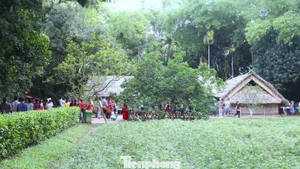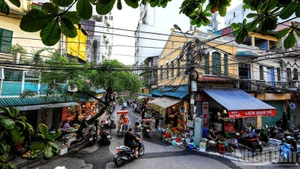The strategy aims to promote and position Vietnam as the leading attractive tourist destination in Southeast Asia, affirm the brand and competitiveness of our country's tourism, and contribute to the implementation of the Vietnam tourism development strategy to 2030.
The strategy sets out the following goals: By 2025, Vietnam will recover and strive to welcome 18 million international visitors, while serving 130 million domestic visitors and maintaining the growth rate of domestic visitors at 8-9% per year. By 2030, the country aims to welcome 35 million international visitors, with a growth rate of 13 - 15% per year, while serving 160 million domestic tourists, with the growth rate of domestic tourists at 4-5% per year.
Vietnam's tourism still focuses on marketing the main groups of tourism products, including Sea and island tourism; Cultural tourism; Ecotourism; Urban tourism with key tourist cities such as Ha Long, Nha Trang, Phan Thiet, Phu Quoc, Da Lat, Sa Pa; and linking tourism with night-time economic development.
In addition, the Strategy also mentions promoting the development of new forms and tourism products such as tourism combining medical treatment and healthcare; agricultural and rural tourism; industrial tourism; sports tourism; and products serve the diverse needs of tourists such as MICE tourism, educational tourism, yacht tourism and beauty tourism.
Regarding the international market orientation, in the period of 2022-2025, Vietnam's tourism will recover its traditional markets in combination with attracting emerging markets such as India and the Middle East. In the period 2026-2030, the tourism industry will maintain and expand the scale of traditional markets such as Northeast Asian countries, Europe, the ASEAN region, North America, Russia, and Oceania; increase market share of customers with high spending capacity; and diversify the market towards sustainable development.
For the domestic market, in the period of 2022-2025, the Strategy states that it will recover and maintain the growth momentum of the domestic tourist market. In the period 2026-2030, the country's tourism will continue to promote the exploitation of the domestic tourist market, diversifying the target market segments including family guests, youth, education, corporate guests, and MICE guests. At the same time, there are also measures to promote the number of guests staying and traveling during the low season.
At the same time, the tourism industry innovates methods, tools, and content, increases the application of digital technology in tourism promotion and advertising while building and implementing digital marketing strategies and plans associated with actual data analysis and evaluation results.
















